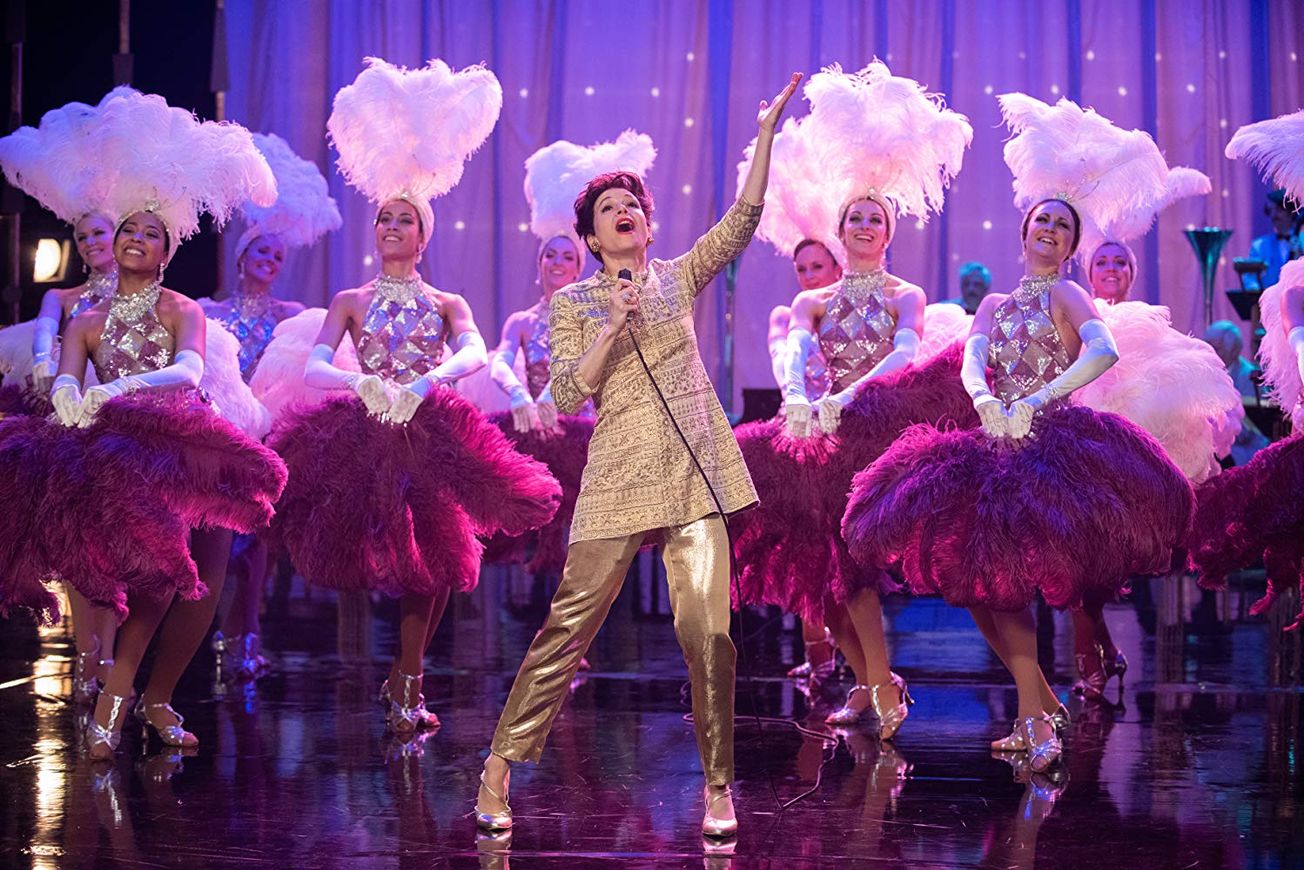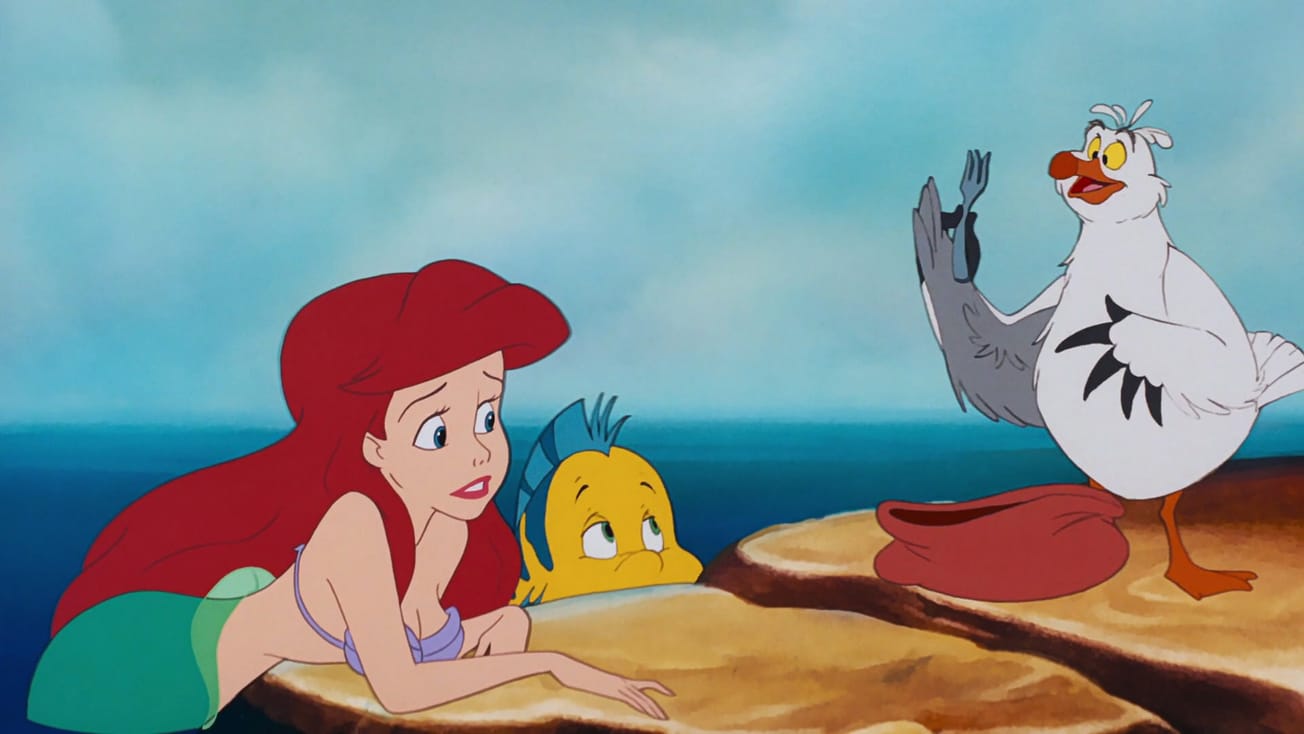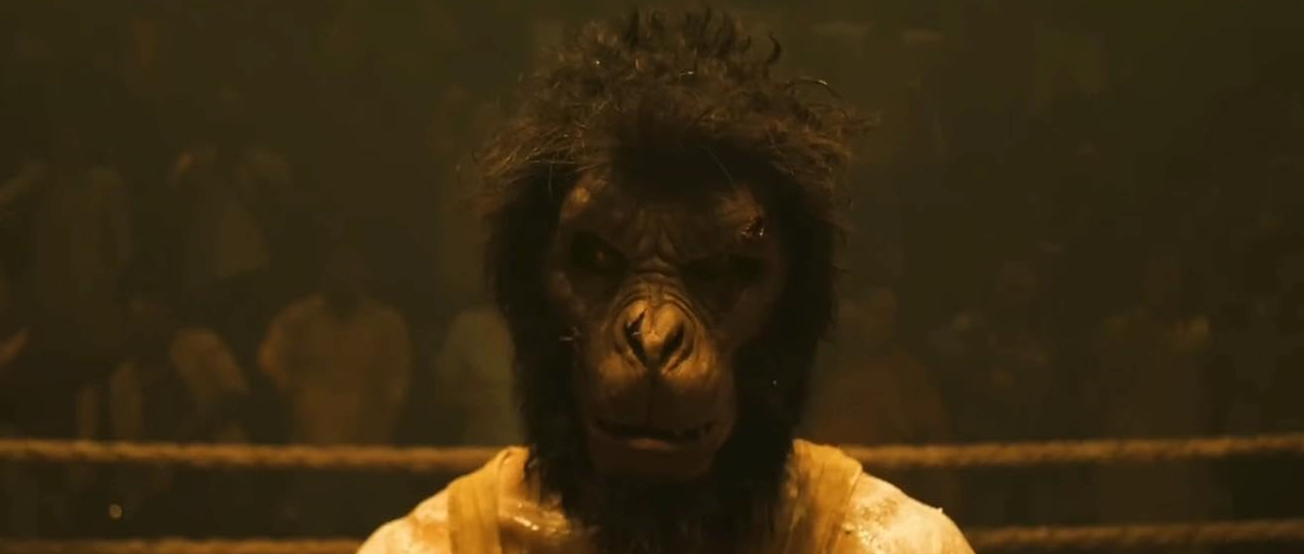By Leah Martindale, Film and TV Editor
Judy (2019) is the Judy Garland biopic my life has been leading up to. With a recent cinematic bout of biopics permeating our screens, it is impressive to see one hold its own as powerfully as this.
With stellar performances, beautiful colouration, and bittersweet honesty permeating throughout: there could not have been a better embodiment of Garland’s slow and shameful fall from grace. Judy is the story of Garland’s eponymous string of performances in London just six months before her untimely accidental overdose death.
Born Frances Ethel Gumm in 1922, Judy Garland first performed onstage at the tender age of 2. Garland rose to international fame as Dorothy in the eternally famous and successful Wizard of Oz (1939), and subsequently starred as Esther Smith in Meet Me in St. Louis (1944) and Esther Blodgett in A Star is Born (1954) among other roles. Unfortunately, hidden behind the curtain of Garland’s time in the limelight was a lifetime of abuse, mistreatment, and fragility.
Renée Zellweger encapsulates Garland’s neuroses, nuances, and natural tragic charm masterfully. Truly her best role to date, she flits through emotions in milliseconds, perfecting the qualities of Garland’s instantly recognisable voice with an age and war-torn melancholy only possible to perfect after months of research. Garland, underweight, invisibly homeless, and desperate, is a surely unimaginably difficult role performed peerlessly. 17-year-old Darci Shaw plays MGM-era Garland with a measured grace and caution befitting such an impossible role.
Hidden behind the curtain of Garland’s time in the limelight was a lifetime of abuse, mistreatment, and fragility.
Special commendation must also go to Rufus Sewell as Sidney Luft, Garland’s third husband and father to her two youngest children; Finn Wittrock plays the initially loveable and quickly distrustworthy Mickey Deans, Garland’s fifth and final husband, with an earnest charm and wit; Bella Ramsey and Lewin Lloyd play Lorna and Joey Luft (respectively) with the tenderness and heartbreak of the knowing children of addiction. Gemma-Leah Devereux appears only momentarily as Garland’s actress/singer daughter Liza Minnelli, but perfects her mannerisms.
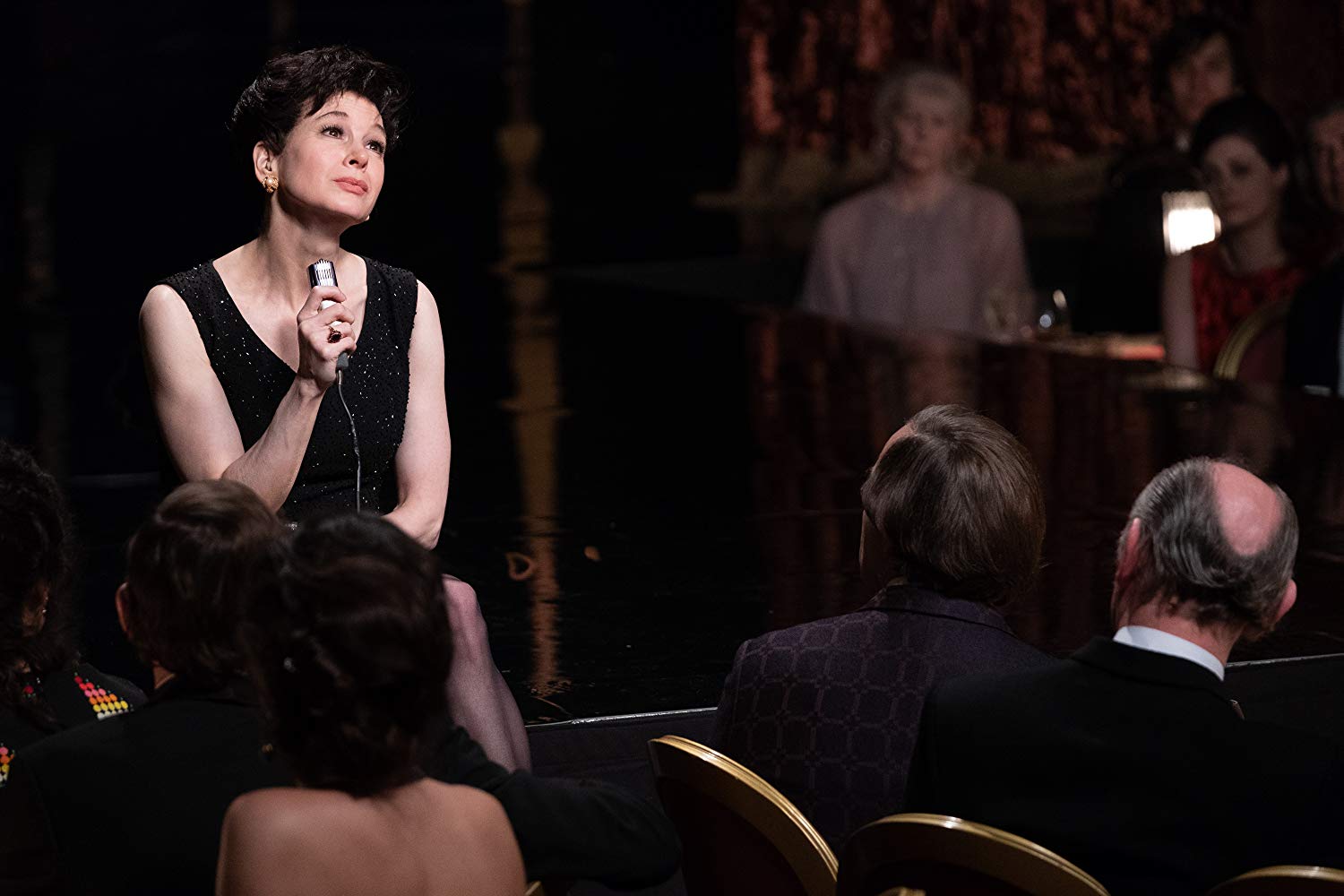
Perhaps the most touching performance, however, comes from Andy Nyman as Dan: musician, Garland superfan, homosexual. Dan and his husband serve as ‘allies’ to Garland during her tumultuous performances. Unable to attend Garland’s previous London showcase due to an arrest for ‘indecency’: in short, being publically gay.
Garland has long stood as a symbol of support and representation for homosexual communities. ‘Friend of Dorothy’ has been slang for a homosexual man since WWII, and the literary Dorothy character is even quoted as saying of her ‘queer’ - odd - friends: ‘The queerness doesn't matter, so long as they're friends’. The rainbow of ‘(Somewhere) Over the Rainbow’ reportedly contributed to the flag’s contemporary usage, and Dorothy’s acceptance of her ‘different’/’dandy’ friends was paralleled in Garland’s life.
Well, I thoroughly enjoyed ‘Judy’ surrounded by South London’s retirees.
— Tom Ramsay (@tomramsay_) October 4, 2019
Renée Zellweger is giving one of those performances that is so utterly & vividly lived in that you forget she’s “performing”.
Plus, I showed great restraint and only cried twice at the gay plot! 👍🏻👍🏻👍🏻 pic.twitter.com/qzDarKTXb7
Throughout her career, Garland rose to a status of heterosexual-female gay-iconography comparable to Cher or Britney. Her funeral is credited in part for the incitement of the Stonewall Riots, and her death was undoubtedly felt by queer and marginalised communities globally. The film’s refusal to mask the homophobia Garland’s fans faced, and her tender embrace of her overemotional fan caused tears on both mine and the characters’ faces.
The film’s refusal to mask the homophobia Garland’s fans faced, and her tender embrace of her overemotional fan caused tears on both mine and the characters’ faces.
Covering her fifth marriage, custody battle, implied homophobia, substance abuse, implicit paedophillia - or at least misconduct with a child, depression, desperacy, and more, Judy is not for the meek-hearted. While less explicit in content than biopic Rocketman (2019), the film manages to be equally, if not more, touching and apt to the subject’s life. Judy tugs at heartstrings, revives musical classics, inspires introspection, and shines a light on a life majorly damaged.
As desperately as you will want it to end happily the film cannot since, as astutely put by my cinema companion, ‘Judy Garland wasn’t written that way’. Even when the film’s bittersweet tear-jerking ending implies the longevity of Garland’s legacy, the end titles announcing her death - a mere 6 months after the curtain-close, at only 47 years of age, of sedative overdose - hammers home the tragic truth.
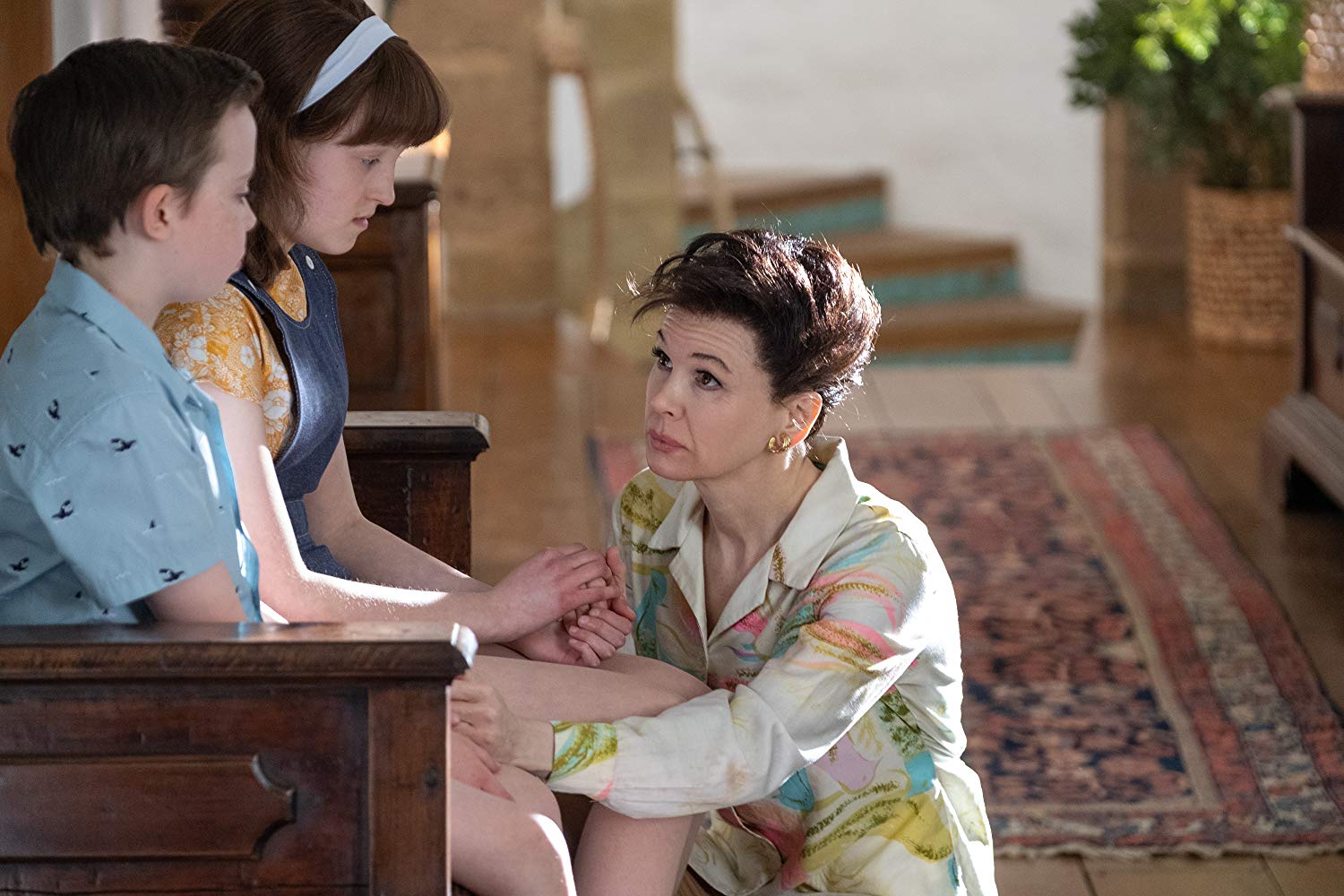
In her final lines, Zellweger implores with a hint of fourth-wall breaking for the audience to ‘promise not to forget me’. No one forgot Judy, as no one with sense will forget Judy. If life is fair this film will be inundated with awards nominations, as repayment for an incomprehensibly impressive task, and reparations for a life unfairly misspent.
Featured: IMDb / BBC Films
Have you noticed the new vogue for Hollywood biopics?

